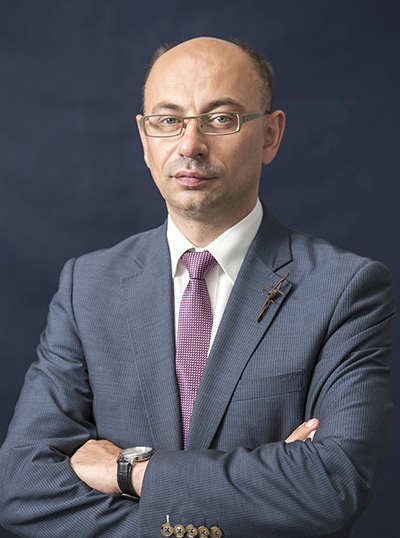
Photo by Institute of National Remembrance
The more you educate about the reality of World War II outside of Poland, the fewer the lies will appear, along with the phrases such as “Polish camps”, which are detrimental to Poland’s reputation abroad.
In conversation with Mateusz Szpytma, Phd, the Vice President of the Institute of National Remembrance and one of the originators of the Ulma Family Museum of the Poles Saving Jewish People During World War II in Markowa.
The Ulma family, who were murdered for providing aid to Jewish people, have become the symbol of great bravery and sacrifice. There were more acts of courage such as theirs in German-occupied Poland.
In fact, there were significantly more families who saved Jewish people during World War II. Around 1,000 people were murdered by the Germans in retaliation. The Ulma family have become their symbol because we happen to know a lot about their life and dramatic death. A lot of memorabilia and testimonies have survived. The Ulma couple were really wonderful people.
Is it possible to say how many Polish people were involved in helping Jewish people in German-occupied Poland?
Unfortunately, there is no definite study in this respect. It is estimated, however, that Poles saved between 40,000 and 100,000 Jewish people throughout World War II. Roughly ten different people had to cooperate to save one life. So we can safely assume that at least 400,000 Poles were involved in helping Jewish people. This is a really large figure considering the fact that whole families could be executed for rendering the slightest form of support to the Jewish population.
What is the awareness of the subject globally?
The issue remains completely unknown outside of Poland. Foreign visitors at the Ulma Family Museum of Poles Saving Jewish People During World War II are most often surprised by the number of Polish people who were capable of such courage. This is because the stereotypical representations of Polish people as anti-Semites are still rampant in some societies.
What can we do to fight these stereotypes successfully?
First of all, we have to examine the testimonies and evidence of Polish people saving their Jewish neighbours and promote it. You can do this with museum exhibitions, for example. I have no doubts, however, that feature films or documentaries can also be made. Each person who saved Jewish people and their stories are worth a picture of their own.
We also have to take immediate and firm action against historical denial. The more you educate about the reality of World War II outside of Poland, the less often the lies will appear, along with the phrases such as “Polish camps”, which are detrimental to Poland’s reputation abroad.



